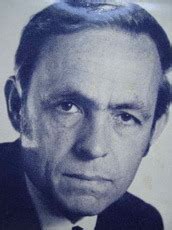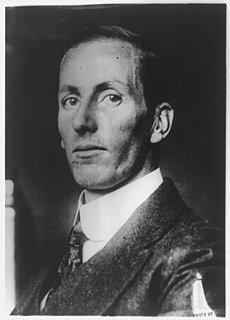A Quote by Robert Anton Wilson
My own opinion is that belief is the death of intelligence. As soon as one believes a doctrine of any sort, or assumes certitude, one stops thinking about that aspect of existence.
Related Quotes
A belief is only a thought that you keep thinking. So as you keep thinking this thought, you keep vibrationally attracting relative to that thought. So you confirm your own beliefs again and again and again and again and again. That's why someone who believes in cancer can confirm that belief, or someone who believes in robbery can confirm that belief. So everything is a sort of confirmation of belief.
There's nothing to mourn about death any more than there is to mourn about the growing of a flower. What is terrible is not death but the lives people live or don't live up until their death. They don't honor their own lives ... their minds are full of cotton. They swallow God without thinking, they swallow country without thinking. Soon they forget how to think, they let others think for them.... Most people's deaths are a sham. There's nothing left to die.
The Simonian system can be extracted from the writings of Hippolytus. The cosmos begins with the one root, which is unfathomable Silence, pre-existent, limitless power, existing in singleness. It bestirs itself and assumes a determinate aspect by turning into Thinking (Nous, i.e. Mind), from which comes forth the Thought (Epinoia). As soon as thought is born out of the thinking silence, suddenly one has become two.
Regardless of nationality, all men are brothers. God is "our Father who art in heaven." The commandment "Thou shalt not kill" is unconditional and inexorable. ... The lowly Nazarene taught us the doctrine of non-resistance, and so convinced was he of the soundness of that doctrine that he sealed his belief with death on the cross. ... When human law conflicts with Divine law, my duty is clear. Conscience, my infallible guide, impels me to tell you that prison, death, or both, are infinitely preferable to joining any branch of the Army.
If an opinion contrary to your own makes you angry, that is a sign that you are subsciously aware of having no good reason for thinking as you do. [...] The most savage controversies are those about matters as to which there is no good evidence either way. Persecution is used in theology, not in arithmetic, because in arithmetic there is knowledge, but in theology there is only opinion. So whenever you find yourself getting angry about a difference of opinion, be on your guard; you will probably find, on examination, that your belief is going beyond what the evidence warrants.
Sören Kierkegaard has another answer: human existence is possible as existence not in despair, as existence not in tragedy; it is possible as existence in faith... Faith is the belief that in God the impossible is possible, that in Him time and eternity are one, that both life and death are meaningful.






































